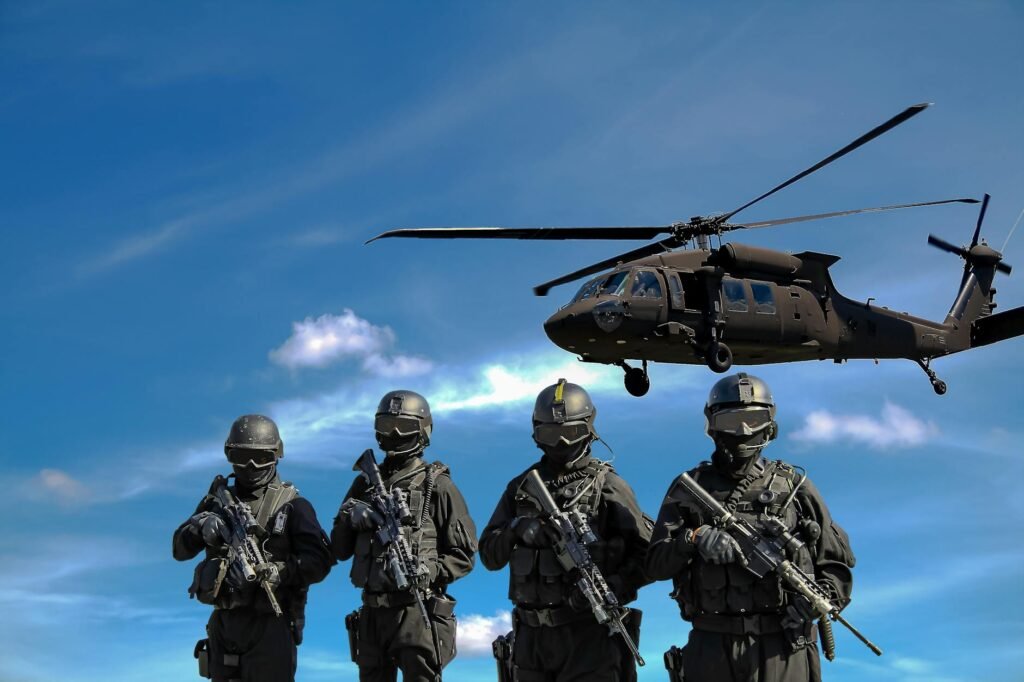The geopolitical tension between China and the United States has entered a new chapter with China’s recent announcement to impose sanctions on nine U.S. defense firms. This move, effective from September 18, 2024, is a direct response to U.S. arms sales to Taiwan, a region China claims as its own under the “One China” policy. Here’s an in-depth look into the implications, background, and potential consequences of these sanctions.
Background and Rationale
China’s decision to sanction U.S. firms is rooted in its long-standing assertion over Taiwan, viewing any foreign military support to the island as an infringement on its sovereignty. The “One China” principle, which many nations acknowledge diplomatically, forms the bedrock of China’s foreign policy regarding Taiwan. However, the U.S., while not officially recognizing Taiwan as a separate nation, has been its most significant backer, providing military equipment under the Taiwan Relations Act. This act commits the U.S. to provide Taiwan with arms necessary for its defense, a policy that has consistently irked Beijing.
The Sanctioned Companies
The firms hit by these sanctions include notable names in the defense sector like General Atomics Aeronautical Systems, General Dynamics Land Systems, and Boeing Defense, Space & Security, among others. These companies have been involved in supplying Taiwan with various military hardware, from drones to tanks, aimed at bolstering Taiwan’s defense capabilities against potential Chinese aggression.
Nature of the Sanctions
The sanctions entail freezing any property these companies might have within China and prohibiting any transactions with Chinese entities. This move not only affects these companies’ business operations within China but also sends a strong political message. Furthermore, senior management from these firms face travel bans, adding a personal dimension to the corporate sanctions.
Geopolitical Implications
This escalation is more than an economic tit-for-tat; it’s a signal of China’s willingness to use economic leverage to exert its geopolitical stance. For the U.S., these sanctions challenge its role as a security guarantor in the Asia-Pacific region. It also complicates the already intricate U.S.-China relationship, affecting global trade, tech supply chains, and security arrangements.
- Global Trade and Economy: The sanctions could disrupt global supply chains, especially in technology and defense sectors, where both nations are key players. Companies might need to reassess their market strategies, potentially leading to a broader economic decoupling.
- Regional Stability: This move might escalate tensions in the Taiwan Strait, one of the world’s most sensitive geopolitical flashpoints. Increased military posturing or miscalculations could lead to conflicts with far-reaching consequences.
- Diplomatic Repercussions: Other nations might find themselves forced to choose sides or navigate more carefully between adhering to the “One China” policy and supporting U.S. initiatives in the region.
The U.S. Response and Future Prospects
Historically, the U.S. has responded to such sanctions with counter-sanctions or through diplomatic channels, urging China to reconsider its approach. However, the situation remains fluid, with potential for dialogue or further escalation. The U.S. could enhance its support for Taiwan or seek to rally international support against what it might label as Chinese economic coercion.
China’s sanctions on U.S. defense firms over Taiwan arms sales represent more than a dispute over military hardware; they are emblematic of the broader struggle for influence, sovereignty, and security in the Asia-Pacific. While these sanctions directly affect the companies involved, their ripple effects could influence global politics, economics, and security strategies. The world watches closely, as the actions taken by both powers could dictate the tone of international relations and peace in the region for years to come. This situation underscores the delicate balance of power and the ongoing challenge of managing relations between the world’s superpower and its rising challenger.
